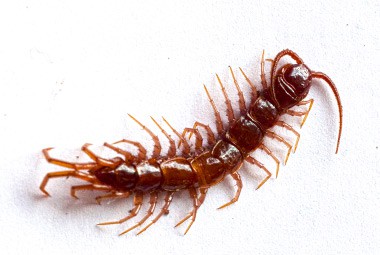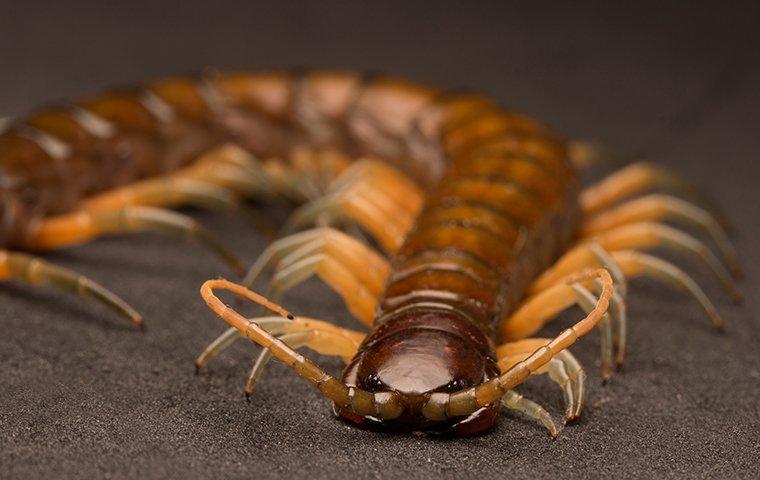They are making several great pointers related to Centipede Prevention Tips as a whole in the content down below.

The word vermin has words centi meaning one hundred. As well as without a doubt, centipedes have great deals of legs running from 30 to 300. So the concept that these pests are crawling all over your house might make your skin crawl. These insects usually conceal in damp as well as dark areas in the daytime and just come to be active during the night.
Although they do not lug human pathogens, they can trigger an allergy in some individuals and psychological discomfort, especially if they enter your home in lots. How can you unwind easily when you recognize they are sharing your home with your? Therefore, it is easy to understand why you desire this creepy crawlies out of your home. Right here are 5 pest control approaches to maintain centipedes at bay:
Seal All the Tiny Holes as well as Cracks
Though vermins do not make openings on your walls, they can get in through fractures made by various other animals like termites or wood borers. Thus, examine if you have various other pest concerns and discuss this with your pest control man. Vermins can be tough to get rid of due to the fact that they are efficient concealing in holes and also cracks. Hence, the best remedy is to make sure they can not come in at all. Utilize a caulking gun to create a quick fix in your house because this About will readily plug up any kind of openings, spaces as well as fractures.
Clear out Gutters to Prevent Wood Rot
Make it a point to tidy and also clear your seamless gutters to ensure that rain water is constantly flowing. This will certainly protect against water from merging where they are not meant to be. When water is stationary, it will saturate right into the wood as well as result in wood rot. At some point, the timber will certainly cave and crack. As a result, you might wind up with problems like a leaking ceiling. And the holes developed will invite pests ahead inside.
Clear Out Products that Attract Centipedes
If you have things in your house that draw in centipedes, you have to eliminate them. Vermins are predators that like to consume various other little insects. They are known as predators that delight in other arthropods and invertebrates. Thus, you should remove their target from your house if you want them gone.
On top of that, you have to likewise move particular products away from your foundation or near your residence. For instance, they like concealing under the following:
Place Proper Testing in Place
See to it your door sweeps and home window screens remain in good working condition. You have to likewise cover basement flooring drains with displays to avoid vermins from entering your house.
Ask For Expert Aid
If all else falls short, you should require expert pest control. Do not attempt to stop a centipede intrusion with DIY chemicals. They can be inefficient on vermins. What's worse is they threaten for humans and also furry family pets when not combined correctly. One of the most reliable method for vermin control is dealing with a licensed expert.
WHAT YOU SHOULD KNOW ABOUT CENTIPEDES
Oftentimes, when people think of a centipede, they’re picturing a millipede. While both centipedes and millipedes are arthropods with many legs, the two are quite different. Centipedes are flatter, lacking the distinct round head and back of millipedes. Centipedes and millipedes both get their name from their high count of legs, though unlike millipedes, centipedes only have one pair of legs per body segment. In another direct contrast to millipedes, centipedes are carnivorous, feeding on insects, such as cockroaches, termites, silverfish, earwigs, spiders, and other unwelcome critters in your home.
While their vigilantism in the bug world may sound like a welcome pest control measure, unfortunately centipedes are considered a nuisance pest. Centipedes are poisonous and even though people are not their intended targets, a bite from a centipede is still highly unpleasant for us humans. Those who are allergic to venomous insects may even experience a heightened reaction to a centipede bite. If you are bitten by a centipede, be sure to thoroughly wash the bite with soap and water. You can use ice and analgesics to manage any pain or swelling that may occur.
They generally live in areas that are damp, dark, and difficult to get to including under rocks or logs, or in moist areas of a home. The most common species of centipede you will come across is the Scutigera coleoptrata, also called the house centipede. They are the only species of centipede capable of reproducing inside a house or similar structure. If there are areas of your home that typically remain damp, such as parts of the bathroom or kitchen, it could be a desirable place for centipedes to live. With a lifespan of anywhere from three to seven years, these are the kind of long-term roommates you may want to serve an eviction notice to.
If you discover a centipede problem in your home, it is likely an indicator that you have a high population of their prey dwelling with you too (remember, that includes cockroaches). Afterall, if there was nothing for the centipedes to eat, they would move elsewhere. In order to address the issue, it is essential to look for and plug up any cracks, holes, or other pest-sized entryways to your home. Additionally, centipedes are not the only insects that find dark, damp corners of a home to be a desirable place to live. Try to eliminate as many of those spaces as possible to cut down on all insect populations.
Centipedes can live in compost as well, along with other members of the composting ecosystem such as earthworms, millipedes, and pillbugs. Unfortunately for the other insects, which predominately are there to assist in the decomposition process, centipedes feed on the composting invertebrates. Luckily, they generally can’t eat them all and are ultimately able to coexist with some of your composting assistants.
Tackling any insect problem can be a stressful task and centipedes are a particularly ugly-looking bunch. If DIY preventative measures aren’t enough, the proper application of pesticides will help to solve a centipede problem. Should you find yourself in need of assistance, give us a call to discuss how we can help you keep your space safe.
https://www.turnerpest.com/centipedes/what-you-should-know-about-centipedes/

I stumbled upon that article about Four Easy Tricks To Keep Centipedes Away while doing a lookup on the internet. So long as you enjoyed reading our blog entry if you please be sure to pass it around. Bless you for your time. Kindly check up our site back soon.